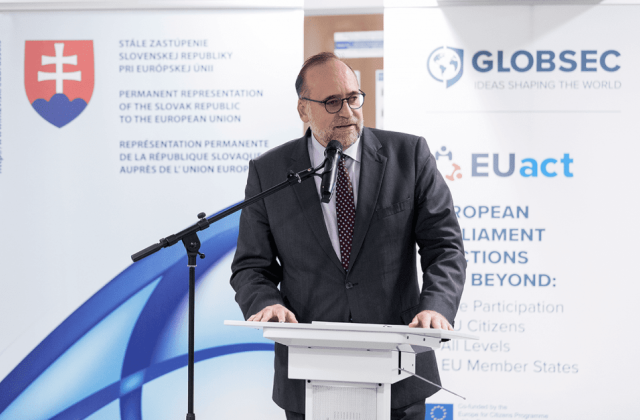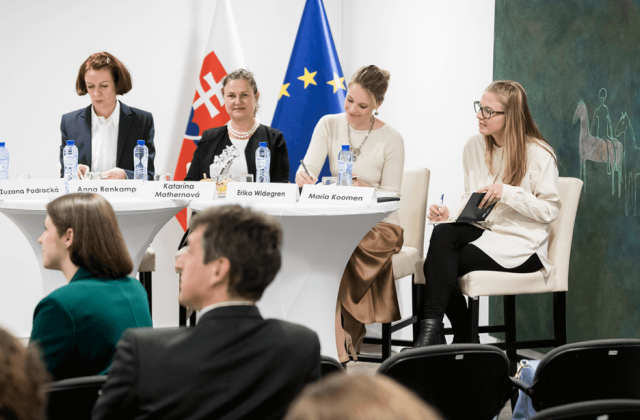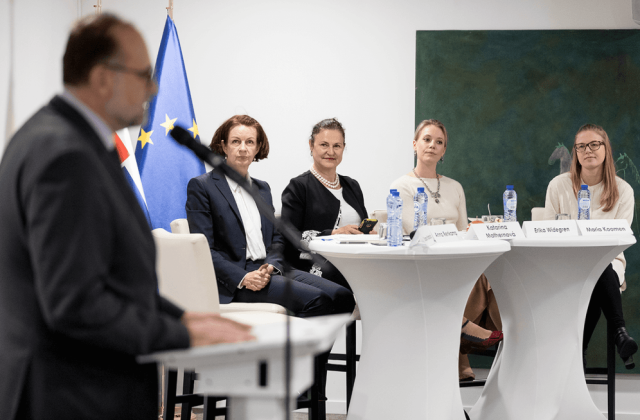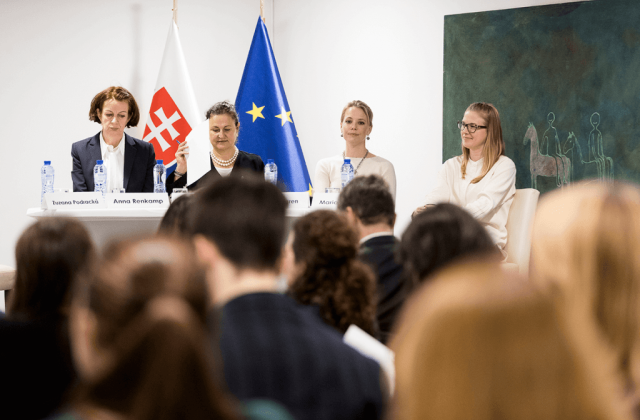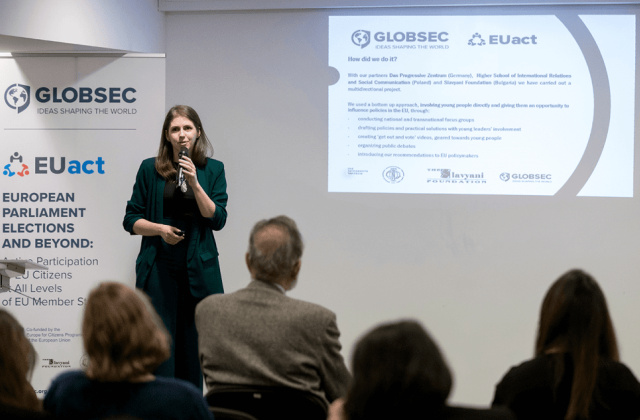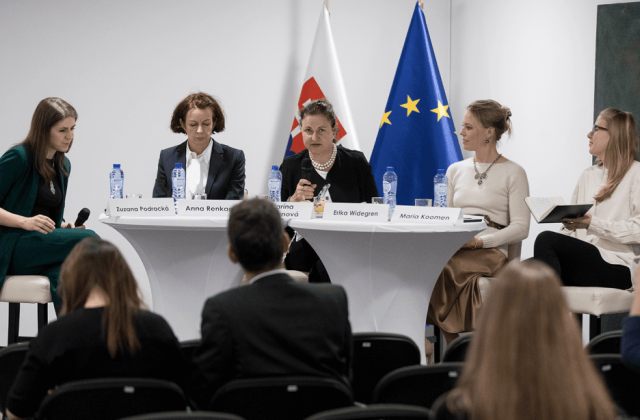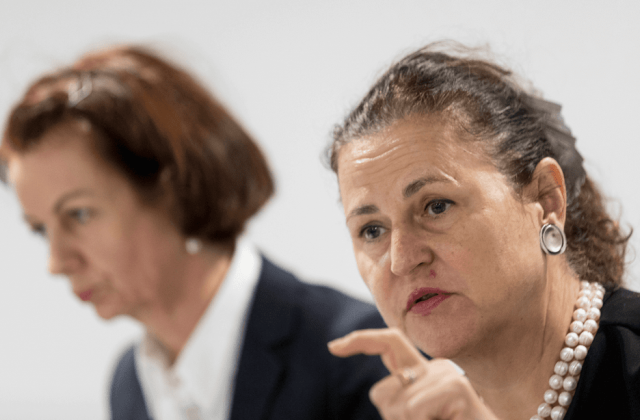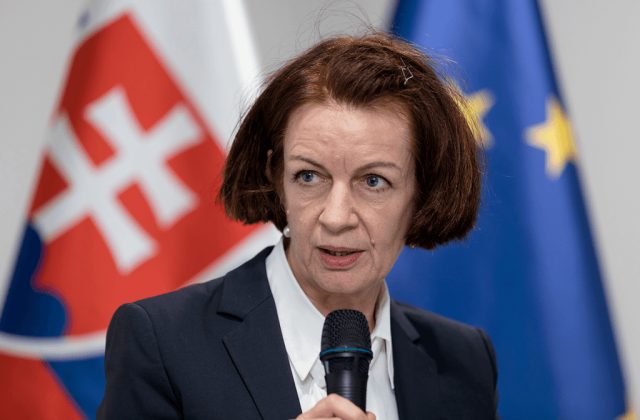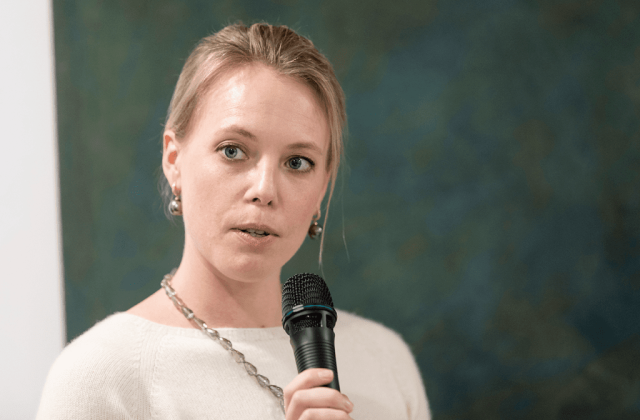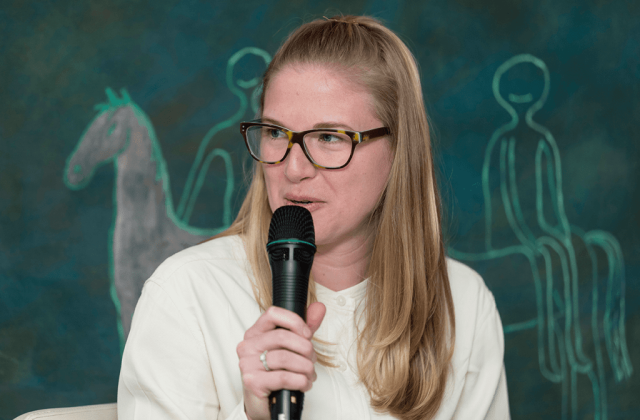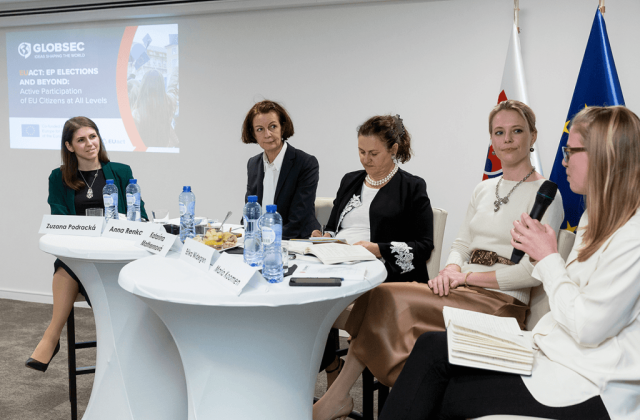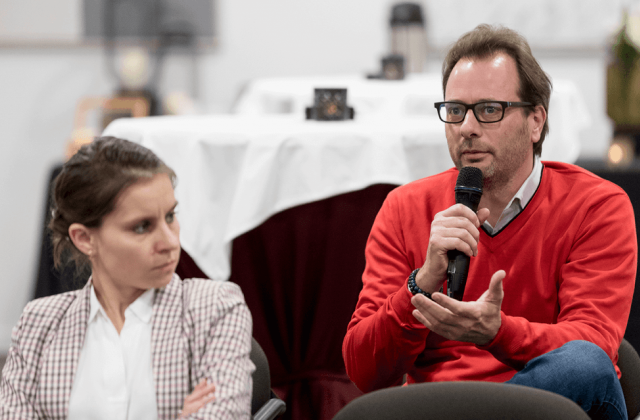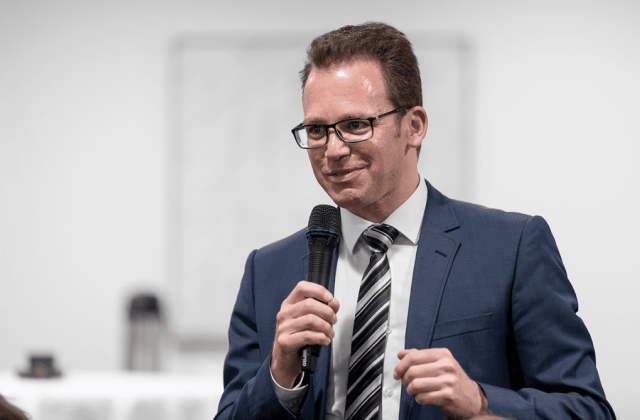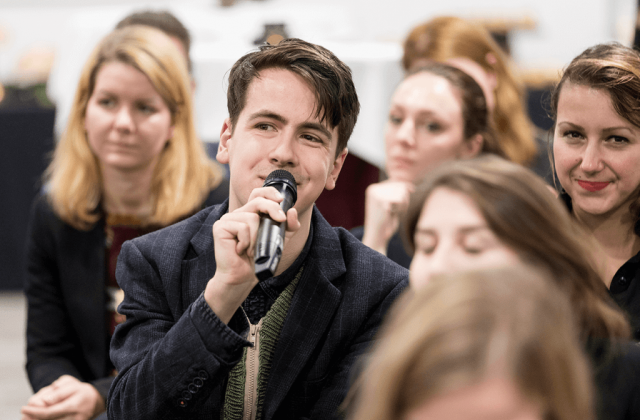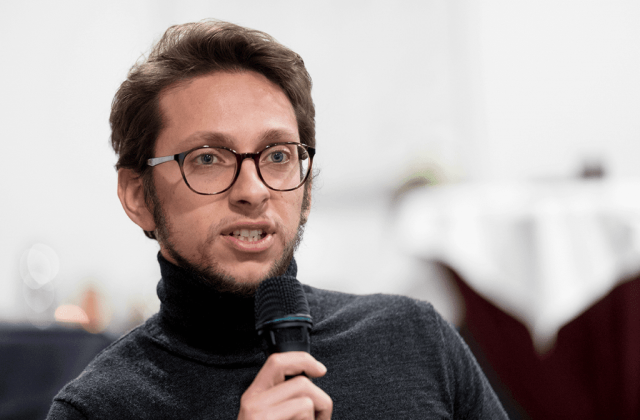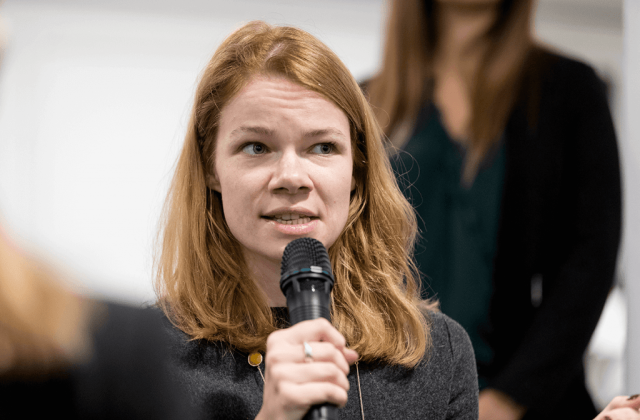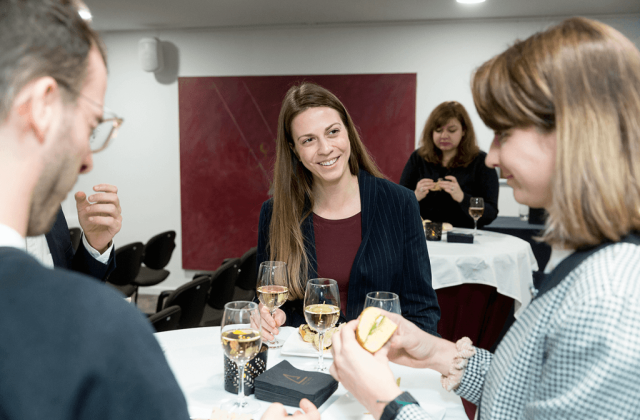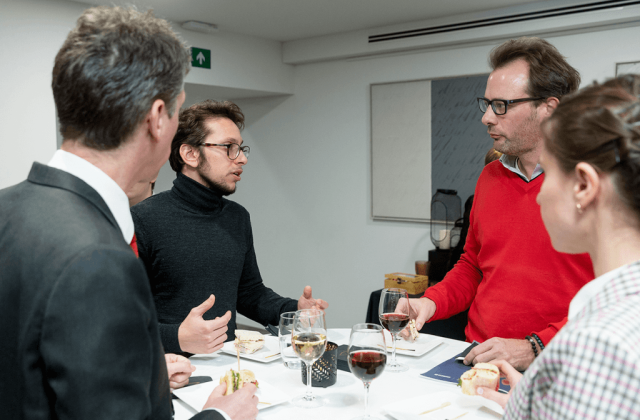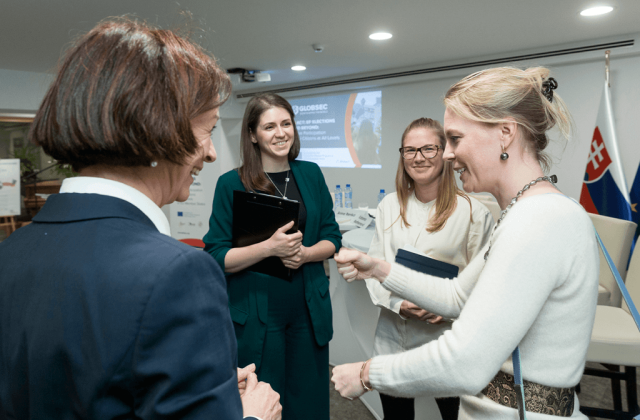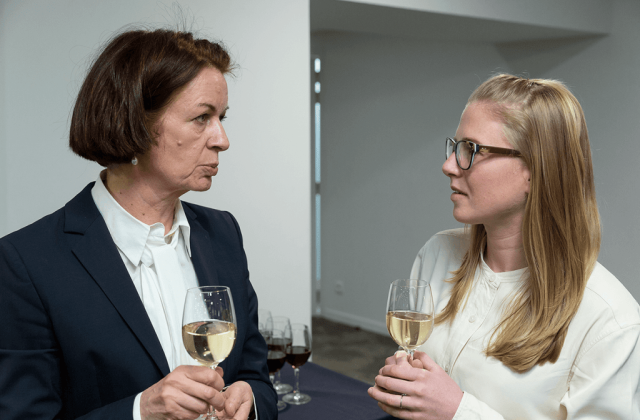From Sofia to Berlin: Young People, EU Citizenship and Activism (Closing Event, Brussels)
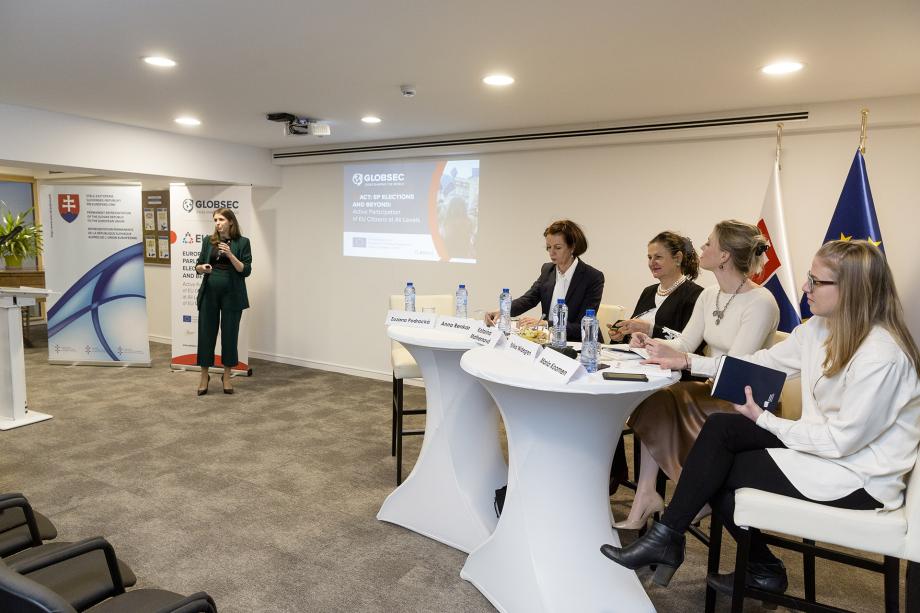
Date: 26th November 2019
Location: Permanent Representation of the Slovak Republic to the European Union, Brussels, Belgium
Participation: 51 participants from 15 countries (Belarus, Bulgaria, Czech Republic, France, Germany, Hungary, Italy, Luxembourg, Macedonia, Netherlands, Poland, Romania, Slovakia, Sweden, U.S.)
After 14 months of exploring attitudes and recommendations towards the European Union from young people all over Europe, the EUact project brought together distinguished female experts working on citizens’ participation for its final presentation and discussion. Hosted by the Permanent Representation of the Slovak Republic to the European Union in Brussels, the event was opened by Ambassador Peter Javorčík, who reflected both on the 30th anniversary of the 1989 Revolutions, and on the 15th anniversary of Slovakia joining the EU. He emphasized the achievements of the past decades, but also the need to ensure that the freedom and prosperity we have enjoyed for the past decades continues to be upheld and partnerships strengthened in the face of current challenges.
The evening was led by Zuzana Podracká, a research fellow at the Globsec Policy Institute, who followed the opening remarks with a presentation of key findings from the EUact project. She highlighted the range of attitudes of young people towards the EU - from Bulgarians, who saw their country’s future firmly intertwined with the Union, to Slovaks, many of whom saw no added value of the country’s EU membership. She also delved into the (lack) of active participation beyond voting in the EP elections and what can be done to change that, commenting on the debates and a social media campaign ran as part of the project. Finally, she ran through some of the key recommendations in the area of education and opportunities for youth, environment and sustainability, EU’s global role, migration, internal and external security, and employment, social affairs and inclusion. Read the full report here.
As the European Union representative on the panel, the first response was given by Katarína Mathernová, Deputy Director-General for Neighbourhood and Enlargement Negotiations from the European Commission. She began by reminding the audience of the pre-EP election concerns all around Europe that the populists would dominate. This scenario thankfully did not happen, which is something to build upon in the upcoming future. The recent Eurobarometer results show that many European citizens do see the EU as something positive, something that they benefit from, just like most participants in the EUact project. Commenting especially on the relatively recent turn of Slovak attitudes from enthusiasm to disinterest and Euroscepticism, she emphasized the importance of citizens having a good perception of the EU, and the need to abandon the ‘bad Brussels/Brussels’ dictate’ rhetoric, so often perpetuated by national governments. Strengthening the EU’s internal cohesion through improving democracy, participation and communication is even more important considering that globally, EU’s position is changing. With new global players emerging, we have to accept that we’re currently less important in the global arena than we were used to historically. The EUact results showed that what the EU needs is an all-encompassing narrative.
The different ways of improving citizens’ participation were discussed in great detail by the remaining panellists - Anna Renkamp, Senior Project Manager at Bertelsmann Stiftung, Erika Widegren, Chief Executive of RE-IMAGINE EUROPA, and Maria Koomen, Senior Program Manager at Carnegie Europe. Sharing valuable insights from their own research and projects on citizens’ participation, they underlined that there is a lot of work being done to promote citizens’ participation and explain how it contributes to strengthening democracy. One of the methods are the Citizens’ Dialogues that bring citizens together to discuss the European issues they are concerned about, together with EU institutions’ representatives. The random selection of people from different Member States ensures that the discussion sticks to European matters, and having politicians engage in these debates too ensures that they get noticed on a higher level. The question of institutionalising such citizens’ consultations came up; all panellists saw it as desirable, depending on the political will. They could improve European democracy by offering new proposals for the political leaders to implement, moving them from ‘low’ to ‘high’ politics. Such methodology can be assessed from mini-public debates, seen all over Europe; rather than seeing them as a small-scale activity focused on ‘lower’ issues, we need to build on them and scale them accordingly, for national or EU level.
That being said, regardless of the political will (which is becoming more substantial), we need to ensure that the institutionalisation happens in the right way. The innovations need to happen on the ground, and it is perfectly fine to experiment with many forms of citizens’ participation, led by citizens themselves; what the EU can do is to provide funding and listen, until we find something that works for everyone. Though the results of the last decade or so of experiments are clear, advancements and innovations take time, as does the process of politicians experiencing and appreciating the positive outcomes of citizens’ participation. It is not easy to find a system that would meet the expectations of all the Member States - there are major, but also minor changes, that need to take place in a broader European environment.
Improving digital tools is a key part of this process, as is the right narrative. It is not just about what the EU thinks is important - attention needs to be paid to the narratives that are important for citizens in various Member States. Pride, national identity and issues such as migration are inevitably the narratives that matter. They should be discussed instead of overlooked, and incorporated into newly developed ideas and concepts, such as the European values, no matter how varied the understanding of such concepts across the Union. Thanks to public debates, people can gain the feeling of belonging, of being European. Given the amount of money spent on ‘alternative’ narratives and the creativity with which they use digital tools, the EU cannot afford to not pay attention to the narratives people care about and needs to employ digital tools we have in an engaging manner. Directly linked to that is the need to save our media ecosystem and media market, especially its transparency, and the need to strengthen EU education, as unanimously recommended by the EUact participants.
The bottom line is that getting citizens to participate is still very difficult, regardless of whether that happens through a local, non-governmental initiative, or through an official EU initiative, such as the anticipated Future of Europe conference. There are exceptions, such as the situation in Slovakia following the murder of the investigative journalist, Ján Kuciak and his fianceé, where people took to the streets and expressed their opinions, despite a strong influence of government’s negative rhetoric towards the EU, but in most countries, citizens still lack the incentive to get involved. That being said, even though there is still a long way to go, on the whole, the attitudes of the population in many ways run parallel to experts’ enthusiastic expectations about the future of the European Union and the actual state of the EU today. From citizens’ dialogues to mini-publics and from democracy academies to transnational assemblies, we should not give up on our ambition to reach the citizens, foster genuine dialogue and strengthen the feeling that the EU is not just the institutions, but all of us. We are on the road to increasing citizens’ participation, but we can only get there together.

